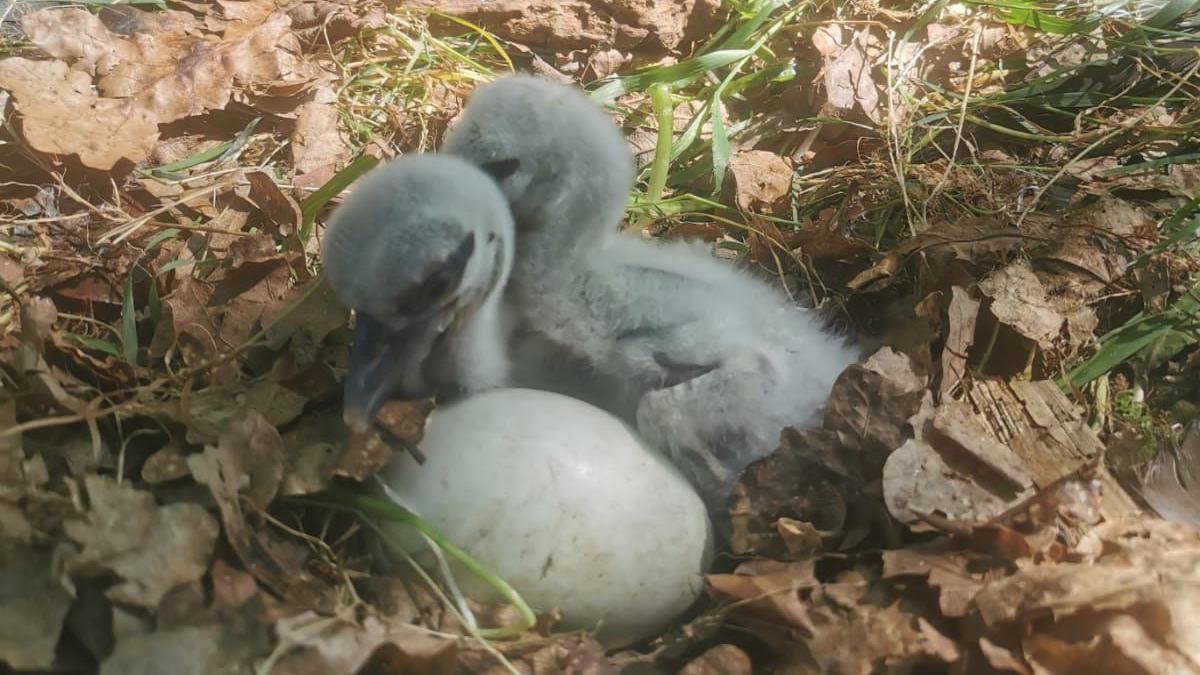Record stork chicks bolster reintroduction efforts
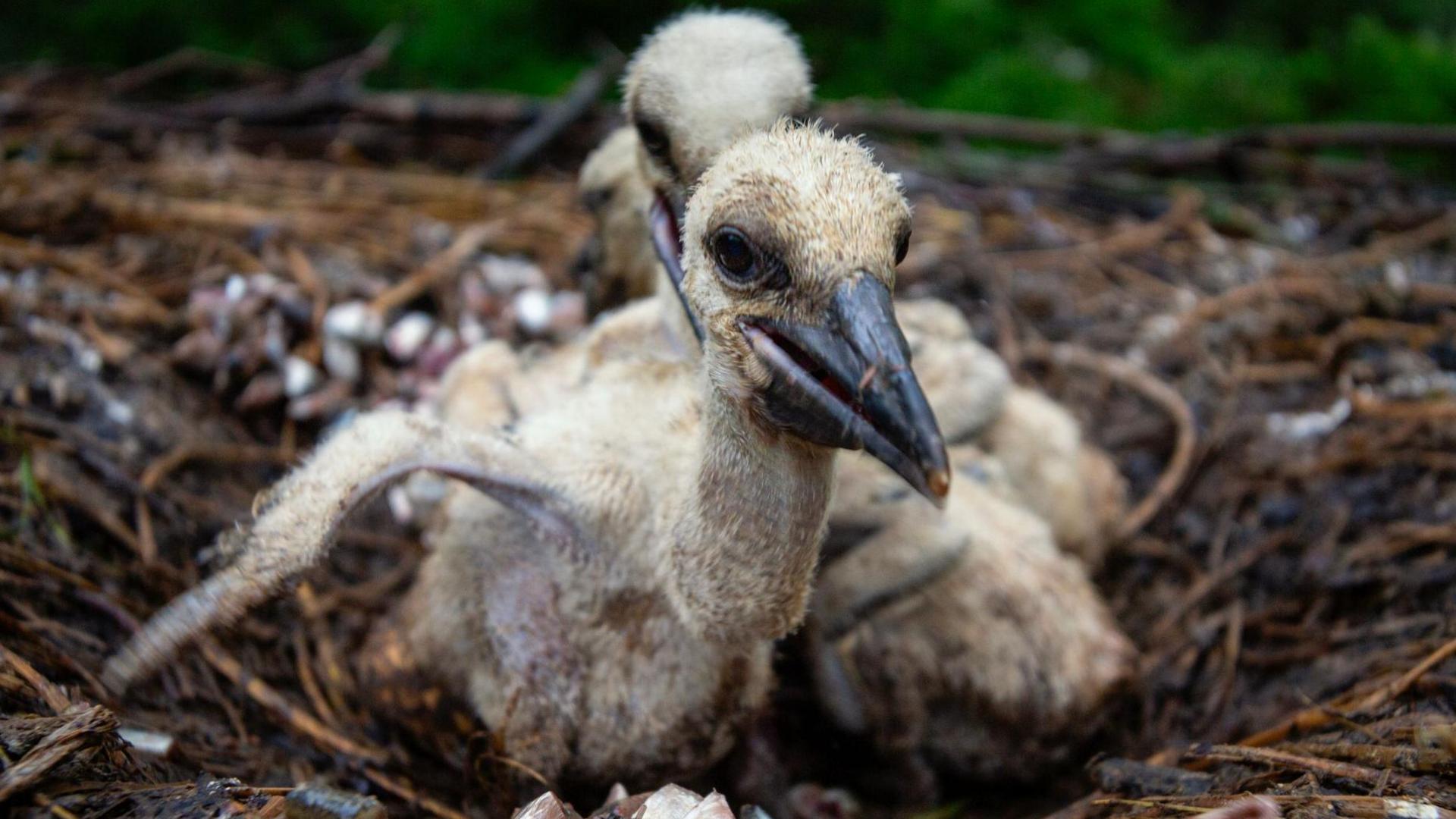
Cotswold Wildlife Park reared 48 white stork chicks this year
- Published
Attempts to reintroduce wild white storks back into Britain have been bolstered after a breeding programme recorded its best ever year.
Cotswold Wildlife Park in Oxfordshire successfully reared 48 chicks this year, making it the park's most successful breeding season since it began efforts eight years ago.
The programme is part of the White Stork Project which aims to re-establish a wild, breeding population of white storks across the south of England.
They had once been a common sight in the skies across Britain but disappeared as a breeding species in the 1400s because of habitat loss and hunting.
Cotswold Wildlife Park first established a breeding group in 2016 after importing 50 storks from Warsaw Zoo.
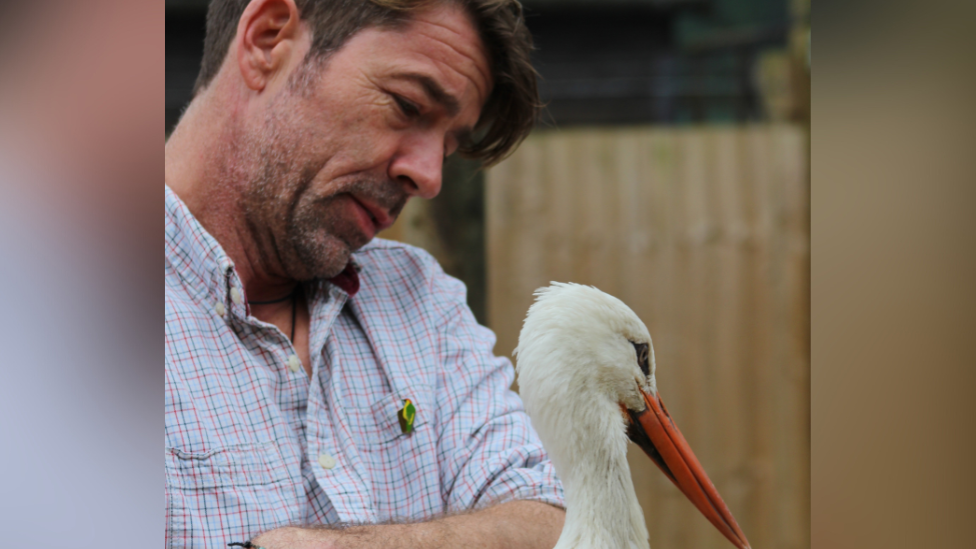
Wildlife park curator Jamie Craig said more than 200 young storks have been released in Sussex
Explaining the process of breeding, Jamie Craig, the wildlife park's curator, said: "White storks begin showing pairing and breeding behaviours in late winter and it is at this time that the dedication of their keepers is vital."
Keepers observe the birds to make sure their nests are completed and they lay their eggs safely.
"After approximately 35 days, the chicks will hatch and the keepers then assume the role of 'fairy godmother' to the chicks and the adults," Mr Craig said.
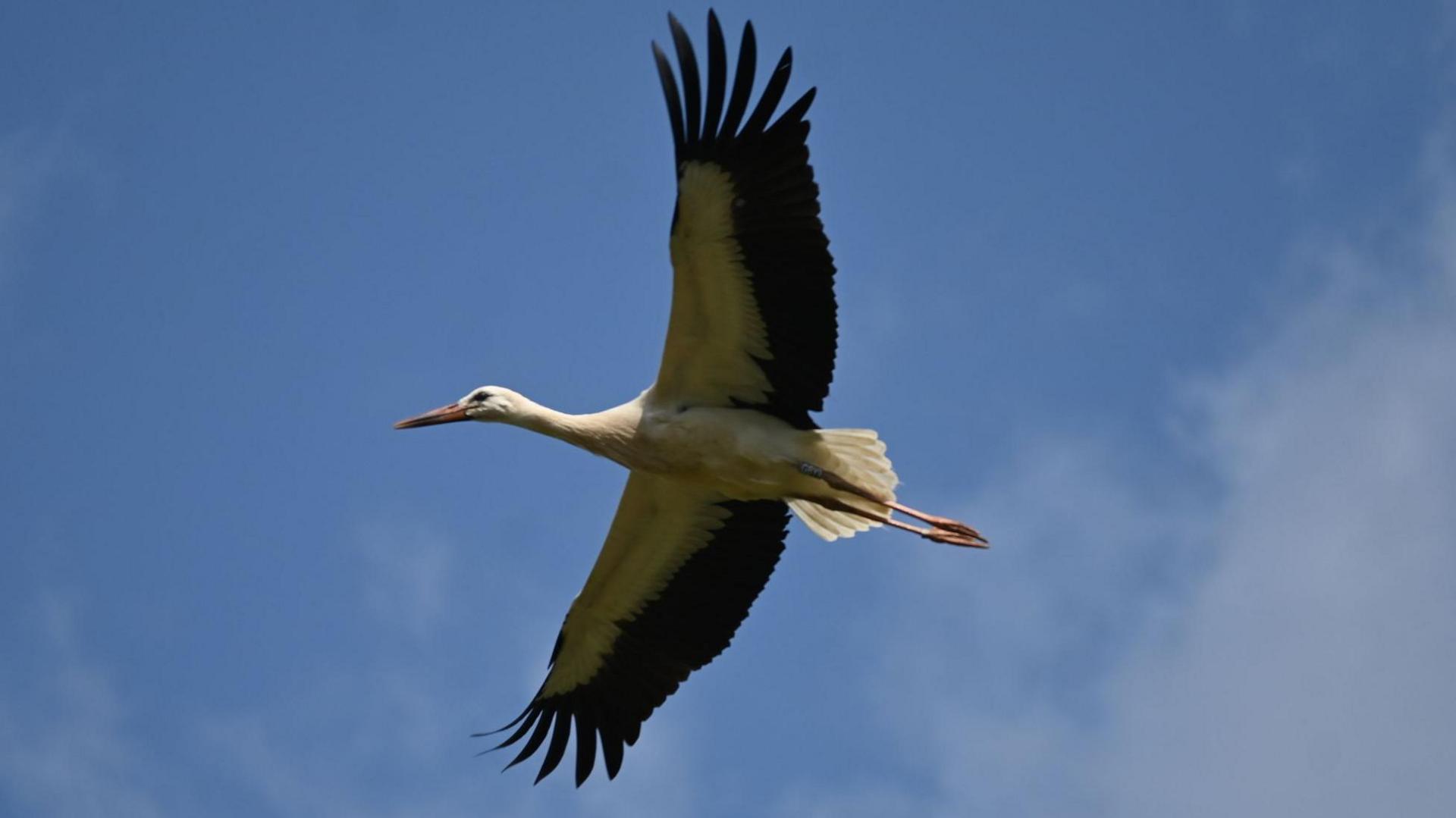
Once healthy, the birds are transferred to Sussex - where they are released
Once the hatchlings are strong and healthy, they are transferred to Sussex - where they are fitted with trackers and released.
"So far, we have transferred over two hundred young storks to Sussex for release," Mr Craig said.
"Many have successfully crossed the Channel and followed traditional migration routes down through Europe and into Africa.
"Storks do not return to their nesting ground until they have matured at four years, so we are all hoping for the first Cotswold Storks to return to England and become a permanent breeding fixture in the landscape once again."
Get in touch
Do you have a story BBC Oxfordshire should cover?
You can follow BBC Oxfordshire on Facebook, external, X, external, or Instagram, external.
- Published4 August
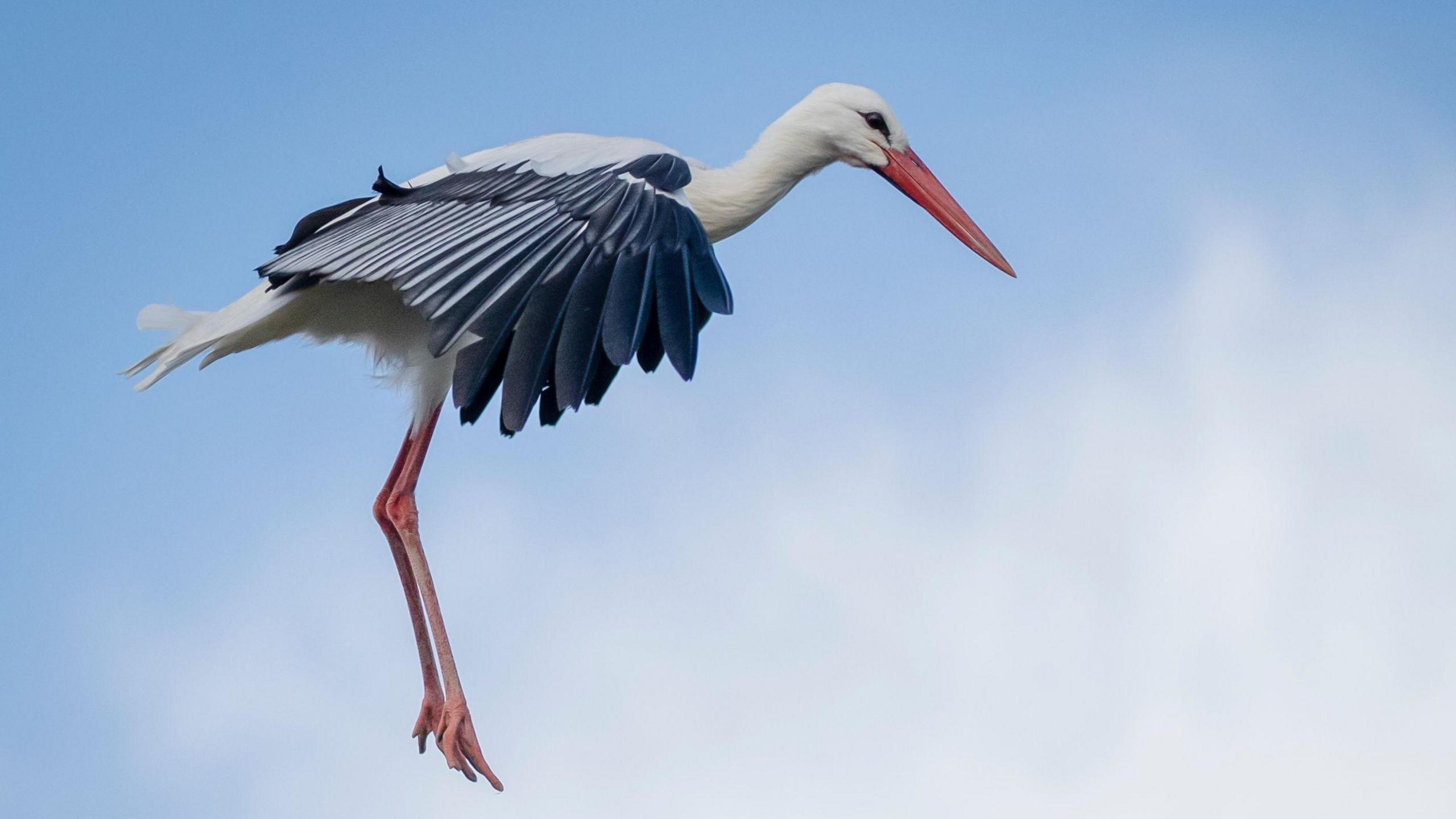
- Published7 June
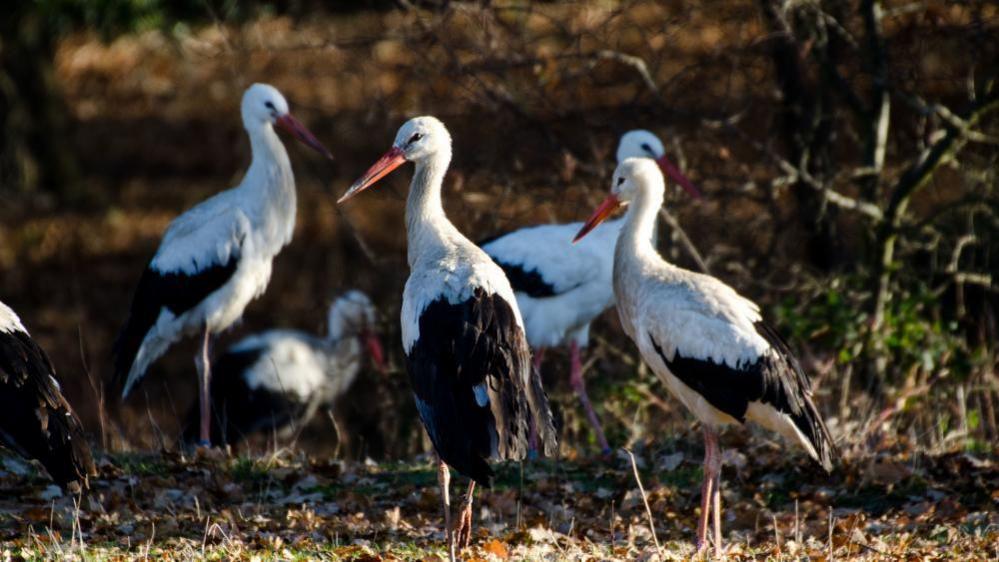
- Published24 May
